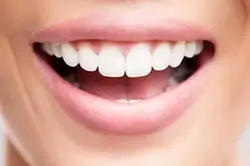 For many people a gum graft is the best solution to a problem they have with their oral health. But there are some people who should think twice before undergoing this procedure. It may not offer the benefits they want and can create other problems. Knowing whether you are a good candidate for a gum graft can help you make a good decision about what to do for your oral health.
For many people a gum graft is the best solution to a problem they have with their oral health. But there are some people who should think twice before undergoing this procedure. It may not offer the benefits they want and can create other problems. Knowing whether you are a good candidate for a gum graft can help you make a good decision about what to do for your oral health.
What Do Gum Grafts Do?
There are several ways that a gum graft can help. Gum grafts are often used to help with receding gums. Receding gums can cause pockets to form between the teeth and gums. This can provide a place for bacteria to breed and can cause loose or lost teeth. The bacterial growth can also lead to problems with gum disease.
The gum graft can cover any areas in the gums where gaps or pockets are. It can provide healthy tissue for the gums and can help reverse the effect of gum disease. Because it is an effective tool, it is a beneficial procedure.
Who Does Not Benefit?
While there are many people that benefit from gum grafts, that does not mean they are for everyone. For a gum graft to work, it needs healthy gum tissue around it. If the gums are not healthy, the graft is more likely to fail.
In addition to healthy gum tissue around the graft, the health of the teeth that are around the graft is also important. If they are not healthy, the graft will struggle to stay healthy. Health issues such as diabetes and people on blood thinners are also not always the best candidate for a gum graft.
The goal of a gum graft is to improve your appearance and to help repair any damage to your gums. If there are conditions that make it hard for a gum graft to produce the desired results, it is better to make changes that improve the conditions or find another form of treatment instead of a gum graft.
For more information about who is a candidate for a gum graft, contact the dental professionals at our office.


